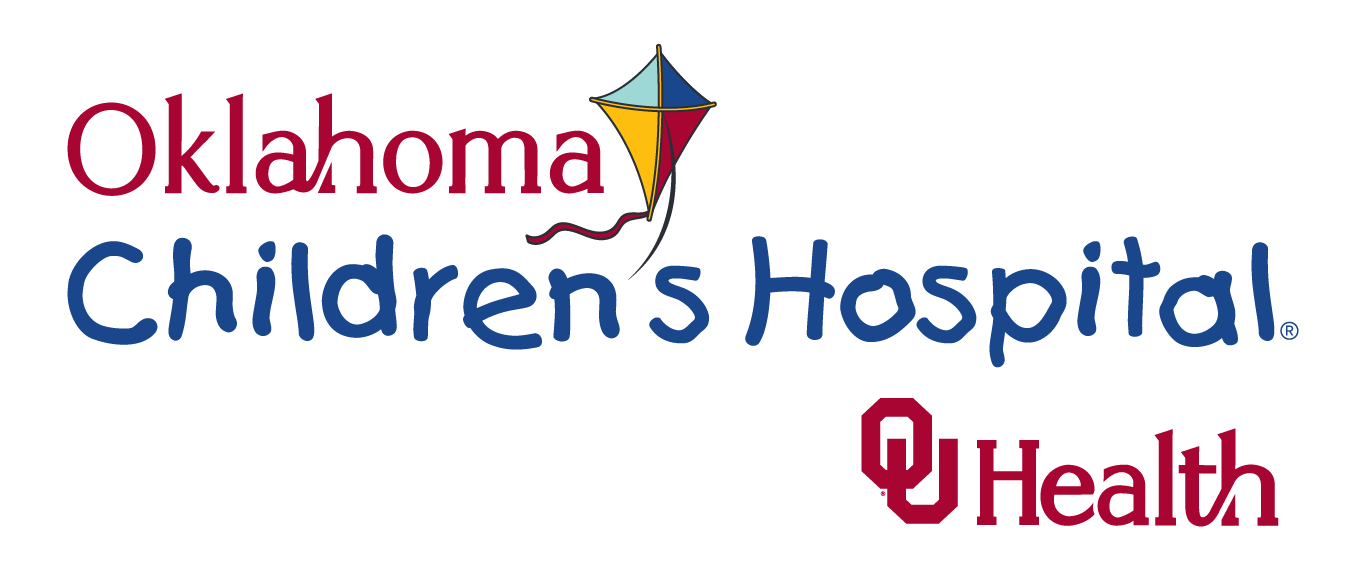Family Advisory Council
At Oklahoma Children’s Hospital OU Health, your family benefits from our patient-first approach to healthcare. With families at the center of all we do, you and your loved ones can stay actively involved as partners in the care of your children.
Your Involvement Helps Improve Healthcare
As you advocate for your family while receiving care at Oklahoma Children's Hospital, you may decide to become a member of the Family Advisory Council (FAC) and bring attention to care-related opportunities for all current patients and families.
Through the FAC, your family benefits from the support of others who have faced similar situations. Many of those families return to give their time to the FAC with the sole purpose of improving the care experience for all patients and families at Oklahoma Children’s Hospital.
When you participate in the Family Advisory Council, you’ll work with other FAC members and hospital staff who take time to understand your unique perspective, including cultural and spiritual needs. You can make a valuable contribution while advocating for your family.
If you would like to join the Family Advisory Council or would like to learn more about the council, email us at OCHFamilyResourceCenter@ouhealth.com or
Fill Out The ApplicationHow You Benefit
FAC members appreciate the diverse needs of patients and families and volunteer time to enrich the compassionate care provided at Oklahoma Children’s Hospital.
Through a wide range of partnerships with FAC, you and your family benefit from a wide range of partnership activities, including:
- Pediatric intensive care unit (PICU) construction in 2020 and other renovation projects to ensure the hospital environment accounts for family needs.
- Oklahoma Children’s Hospital rebranding and assistance in the development of language that resonates with families.
- Oklahoma Children’s Hospital Family Resource Center construction project and programming to bring families’ perspectives to facility design and programs.
- Employee Badge Buddies to display providers’ role in patient care and clarify who works as part of the care team.
- Community Health Needs Assessment to provide insight on community needs, program gaps, and input on implementation plan.
- Food Insecurity Program to maximize program to meet family needs in an appropriate way.
- Remodeling of the family restroom for improved accessibility.
Your involvement in the FAC also can lead to other valuable activities such as:
- Offering advice and counsel on the Oklahoma Children’s Hospital Patient Guidebook.
- Helping develop the Oklahoma Children’s Hospital COVID-19 visitation policy and communication to support families during uncertain times.
- Participating in resident physicians meeting to share firsthand experiences of being in the hospital and living with a chronic or acute illness.
Family Advisory Council Members
The Beasley’s
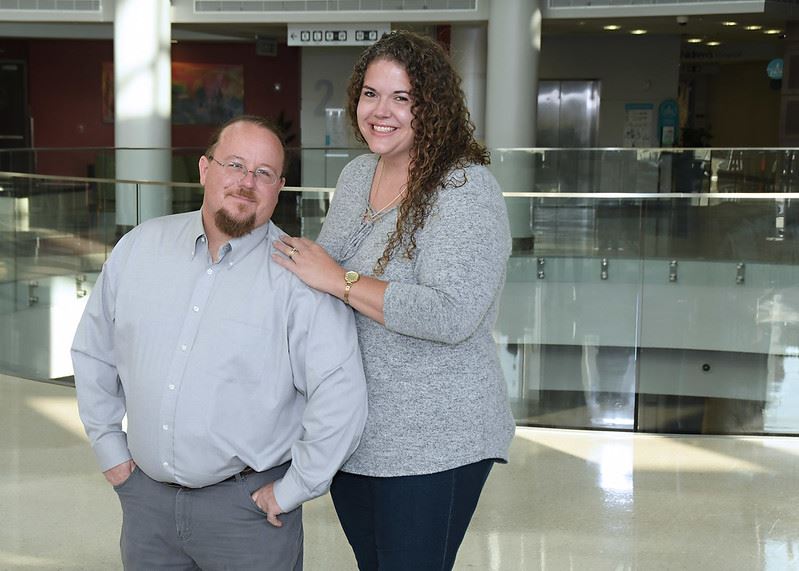
At 19 weeks’ gestation, Max Beasley, son of Ty and Audra, received
a diagnosis of spina bifida and bilateral ventriculomegaly. Care for Max
and his mom was transferred to Oklahoma Children’s Hospital where
Max was born in July of 2016. While he spent 11 days in the NICU, Max’s
defect was closed and, five days later, his neurosurgeon placed a VP shunt
for hydrocephalus.
Since birth, Max has experienced many surgeries. He continues rehabilitation and care under his primary care physicians at Sooner Pediatrics and several different specialists at Oklahoma Children’s Hospital and elsewhere.
The Beasleys joined the Family Advisory Council to offer the perspective of a family with a child with multiple disabilities. They understood the need for collaborative care and the importance of open communication among physicians for the betterment of Max's rehabilitation.
The Beasleys are forever grateful for the physicians that offered hope and healing. While spending a lot of time at the hospital, the Beasleys encountered an unnecessary barrier and brought it to light through participation in FAC. They take pride in knowing their experience and insight helps families who need care in the future.
The Daveys
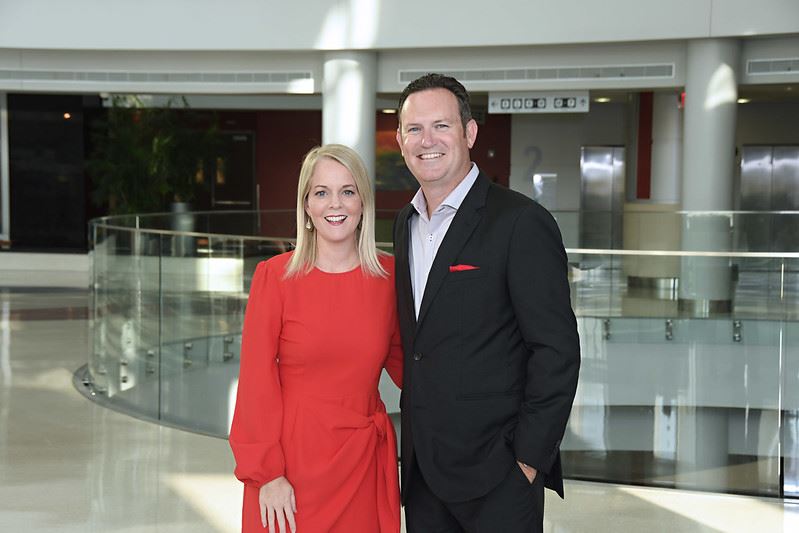
Heather Davey transferred her obstetrical care to Oklahoma Children’s Hospital when she and husband, Jason, learned their baby had a congenital heart defect, a fact that changed Heather’s pregnancy status to “high-risk.” They met Marvin Williams, M.D., a maternal-fetal medicine specialist, and an entire team of MFM providers who took them under their collective wing, and helped them remain calm while navigating a complex storm of medical and emotional needs. Born via C-section, Liam was immediately rushed to the neonatal intensive care unit, where the nature of the heart defect was confirmed.
This abrupt entrance into the word of congenital heart defects left Liam’s parents feeling hopeless and uncertain. Nurses and doctors in the NICU reassured them that Oklahoma Children’s Hospital had the resources to treat complex conditions like Liam’s, and that Harold Burkhart, M.D., was arguably one of the most incredible pediatric heart surgeons in the world. “From the moment we met Dr. Burkhart and his team, a sense of peace came over us, and we had the faith to release our fears,” said Heather Davey.
Liam’s first open-heart surgery was performed one week after birth. The PICU was a new world, buzzing with the sounds of life-saving machines and bustling with staff providing critical care to vulnerable children. Jason Davey said, “Liam spent seven days in the PICU, where we witnessed extraordinary care given by nurses who treated patients as if they were their own children.”
The PICU is never a chosen destination, but the unit became a second home for Liam’s family. Weeks later, while thrilled to be discharged and taking their new baby home, the Daveys felt as if they were leaving their new-found family at Children’s - the family that saved their son’s life. “Each nurse and doctor in the NICU and CVICU is an incredible human being with a heart of gold.” Liam was discharged six weeks after birth, with cardiology follow-ups scheduled every three months.
Over the next few years, the family faced a range of serious complications, including a diagnosis of congestive heart failure, a near-fatal bout with pneumonia and two more major heart surgeries. Recovery from the third open heart surgery was difficult, with pneumonia and the severe heart condition stacked against Liam. However, the quality of care and comfort from the CVICU and heart team was always first-rate. The Daveys saw above-and-beyond measures taken on Liam’s behalf, while they were kept engaged and informed on every decision. “Anytime we had a question or suggested a different approach, the listened and considered our opinions,” they said.
A stay in the cardiovascular intensive care unit didn’t frighten or upset Liam. “Thanks to the amazing team of Child Life specialists, Liam looked forward to the many opportunities to play, paint, color, watch movies and eat popsicles every day,” said Jason. “Without the incredible staff at Oklahoma Children’s Hospital we would have never made it. They are the reason our son is alive.”
Liam continues to see his specialists every four months and calls Oklahoma Children’s Hospital “his hospital.”
When invited to become part of the Family Advisory Council, the Daveys didn’t hesitate. “Joining FAC was the easiest decision Jason and I made,” Heather said. The Daveys were eager to work with teams engaged in design and construction aspects of the new PICU, and enjoyed watching its progress first-hand. Another highlight was having the opportunity to provide feedback during the marketing initiatives for rebranding and unveiling the hospital’s new logos and taglines.
“We owe everything to Oklahoma Children’s Hospital and being a part of this council is a great way to enhance what other families will experience. It is not only rewarding, but also a lot of fun,” Jason said. “Whether the task is selecting furniture and color schemes, or providing feedback about hospital image and messaging, being hands-on is exactly why we joined the FAC.”
The Hannemans
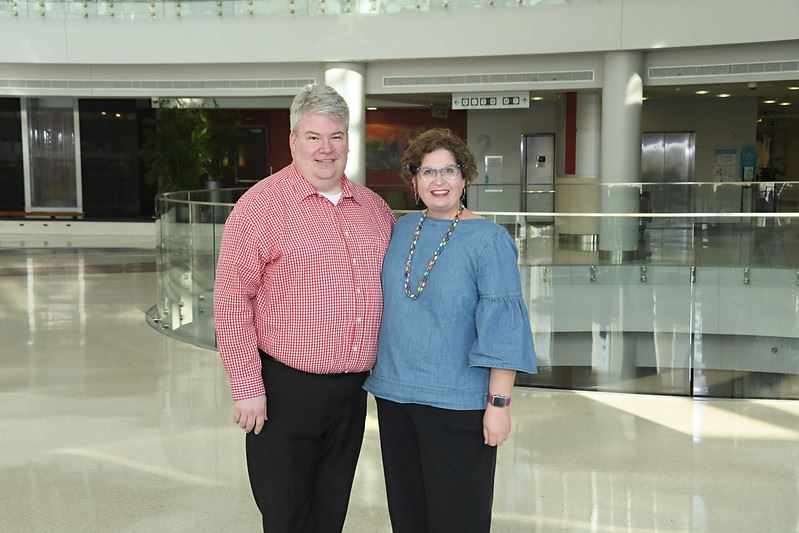
Aimee and Ben Hanneman, Oklahoma City “lifers” except for spending college years in Stillwater and Dallas respectively, are parents to Adeline, age 11, and Bennett, forever 3. Aimee is a reading specialist for a local school and Ben is a financial manager for an Oklahoma state agency.
Oklahoma Children’s Hospital OU Health came into the Hannemans’ life in August 2012, when Bennett became ill at the age of five months. After several months of treatment and testing, it was discovered Bennett had a rare, terminal illness called Pearson Syndrome, which meant he joined a worldwide group of fewer than 100 children living with this disease.
Because Pearson Syndrome is just one of many bone marrow failure syndromes, the Hannemans looked for specialized care and the staff of the Jimmy Everest Center for Blood Disorders and Cancer quickly became their extended family. As a mitochondrial disease, Pearson Syndrome affects other systems in the body, so Bennett was also monitored by specialists in audiology, cardiology, ophthalmology, gastroenterology, nephrology, and general pediatrics.
When needing assistance with a life-threatening infection, infectious disease was also added to the list of specialists. On several occasions, Bennett’s care required the attention of staff in the Oklahoma Children's Hospital PICU (pediatric intensive care unit).
In addition to Pearson Syndrome, Bennett was secondarily diagnosed with Myelodysplastic Syndrome, a pre-leukemia cancer. He heroically underwent a bone marrow transplant in December 2014 and worked hard in the months following to build his new immune system. However, the effects of Pearson Syndrome were relentless and Bennett died in June 2015.
The Hannemans say: “We are more than grateful that Oklahoma Children’s Hospital was here when we needed the best care for Bennett and our family. His medical team and other staff became our extended family. It is our honor to serve on the Family Advisory Council to ensure that all children and their families have access to the finest pediatric medical care in the state of Oklahoma.”
The Stearns
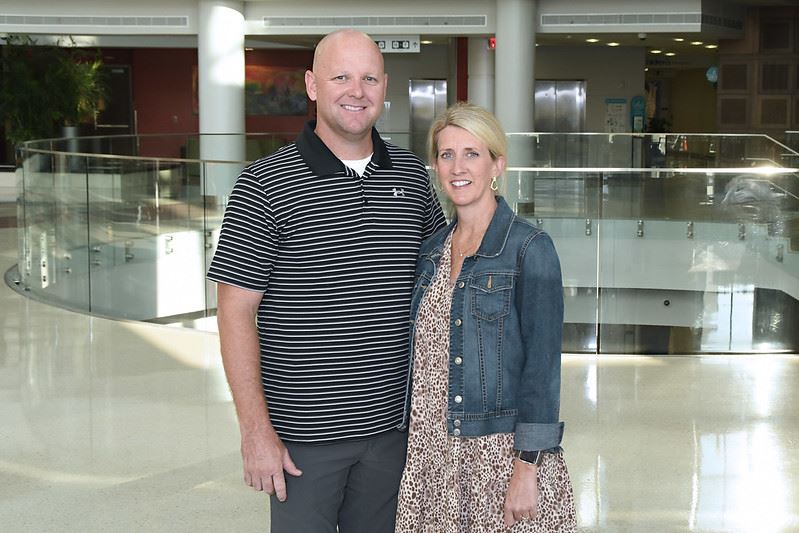
Kennedy Stearns was diagnosed with acute lymphoblastic leukemia in 2009 at the age of 8. Kennedy endured two years of chemotherapy treatment and was declared cancer free for almost five years when she relapsed in 2016 with the same type of leukemia.
The second course of treatment, which lasted more than two years, was extremely difficult and filled with many complications. Kennedy contracted an infection around her spinal column after receiving a spinal tap that made walking a challenge.
Shortly thereafter, Kennedy entered the hospital for a “routine” stay for a chemotherapy treatment that was to last two weeks, but she contracted a fungal infection in her blood that spread throughout her body. The fungal infection was relentless -- it attached itself to her legs, which kept her from walking for several months; it attacked her heart, which caused congestive heart failure and sent her into the ICU for several weeks; and it attacked her eyes, causing permanent vision loss.
Due to Kennedy’s lack of an immune system, many other complications occurred, including blood clots, pneumonia, collapsed lung, permanent tissue damage requiring reconstructive surgery, and bone loss. After 60 days in the hospital, Kennedy was released to complete her treatment while also slowly recovering from her hospital stay. In May of 2018, Kennedy completed treatment and is now a sophomore at the University of Oklahoma. She studies psychology and enjoys membership in the Phi Beta Phi sorority.
The Stearns family wanted to give back to Oklahoma Children’s Hospital for all the love and care they received while Kennedy was a patient, so they joined the Family Advisory Council. That way, they could use their experiences to better shape the policies and practices at Oklahoma Children’s Hospital with the goal of making other families’ hospital time more comfortable.
What FAC Participation Means for You
As a member of Family Advisory Council, you represent the voice of the patient experience. Regular participation in FAC meetings contributes to your success. Members should expect to:
- Serve a two-year term
- Attend monthly meetings that typically occur from 5:30pm – 7:30 p.m. on the fourth Thursday of the first and last month of each annual quarter (July, September, October, December, January, March, April, and June)
- Take part in a few special events or activities to raise awareness about FAC
- Make a commitment to serve as the voice of the patient and family



